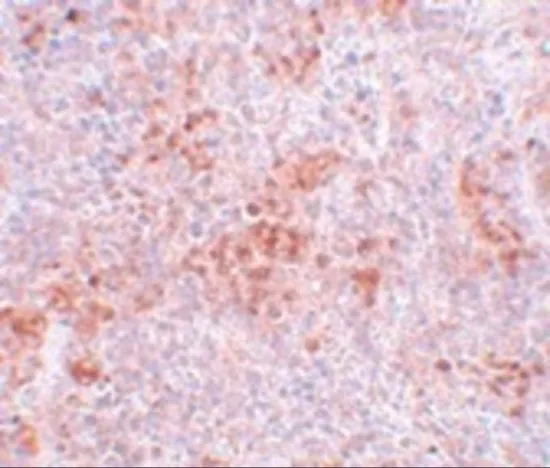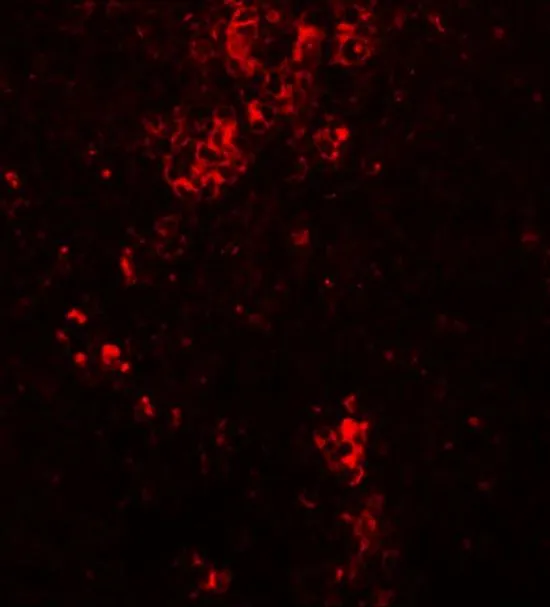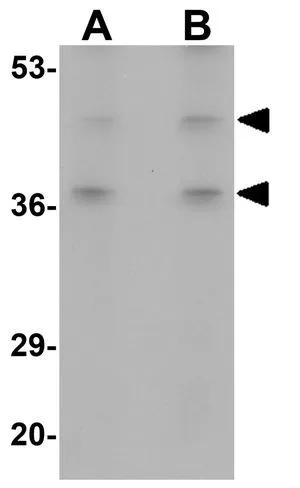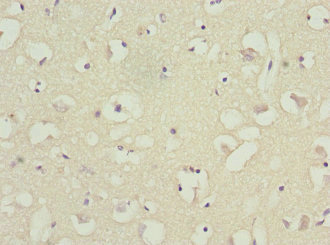
IHC-P analysis of mouse kidney tissue using GTX85010 BFAR antibody. Working concentration : 5 μg/ml
BFAR antibody
GTX85010
ApplicationsWestern Blot, ELISA, ImmunoHistoChemistry, ImmunoHistoChemistry Paraffin
Product group Antibodies
ReactivityHuman, Mouse, Rat
TargetBFAR
Overview
- SupplierGeneTex
- Product NameBFAR antibody
- Delivery Days Customer9
- Application Supplier NoteWB: 1 - 2 microg/mL. IHC-P: 5 microg/mL. *Optimal dilutions/concentrations should be determined by the researcher.Not tested in other applications.
- ApplicationsWestern Blot, ELISA, ImmunoHistoChemistry, ImmunoHistoChemistry Paraffin
- CertificationResearch Use Only
- ClonalityPolyclonal
- Concentration1 mg/ml
- ConjugateUnconjugated
- Gene ID51283
- Target nameBFAR
- Target descriptionbifunctional apoptosis regulator
- Target synonymsBAR, RNF47, bifunctional apoptosis regulator, RING finger protein 47, bifunctional apoptosis inhibitor
- HostRabbit
- IsotypeIgG
- Protein IDQ9NZS9
- Protein NameBifunctional apoptosis regulator
- Scientific DescriptionThe bifunctional apoptosis inhibitor (BFAR) is scaffold protein that integrates signaling components of the cells apoptosis-regulatory machinery. BFAR is a multidomain protein capable of inhibiting apoptosis induced by TNF-family death receptors (extrinsic pathway) as well as mitochondria-dependent apoptosis (intrinsic pathway). Interaction of BFAR with Bcl-2 or Bcl-XL via a SAM domain may contribute to the anti-apoptotic properties of BFAR. In addition, BFAR contains a DED-like domain that is capable of suppressing apoptosis mediated at the receptor level. BFAR is also thought to be involved in the regulation of neuronal survival.
- ReactivityHuman, Mouse, Rat
- Storage Instruction-20°C or -80°C,2°C to 8°C
- UNSPSC12352203







